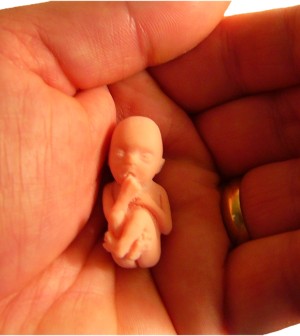- Recognizing the Signs of Hypothyroidism
- 10 Strategies to Overcome Insomnia
- Could Artificial Sweeteners Be Aging the Brain Faster?
- Techniques for Soothing Your Nervous System
- Does the Water in Your House Smell Funny? Here’s Why
- Can a Daily Dose of Apple Cider Vinegar Actually Aid Weight Loss?
- 6 Health Beverages That Can Actually Spike Your Blood Sugar
- Treatment Options for Social Anxiety Disorder
- Understanding the Connection Between Anxiety and Depression
- How Daily Prunes Can Influence Cholesterol and Inflammation
Medicaid Paying for More U.S. Births: Study


THURSDAY, Sept. 5The number of births paid for by Medicaid is increasing, with nearly half of U.S. births covered this way in 2010, according to a new study.
The program, which provides free or low-cost coverage to families and individuals who qualify, paid for 48 percent of the 3.8 million births in the United States in 2010, up from 40 percent of births in 2008.
In actual numbers, about 90,000 more births were paid for by Medicaid in 2010 than in 2008, according to the findings, which were published in the September issue of the journal Women’s Health Issues.
The findings will help researchers assess the effects of the Affordable Care Act, the national health reform law, on mother and child health, according to the study authors.
“As states expand coverage, low-income women of childbearing age will be able to obtain more continuous coverage before and between pregnancies,” lead author Anne Markus, an associate professor of health policy at the George Washington University School of Public Health and Health Services, said in a university news release.
“Now, for the first time, researchers will have a comprehensive baseline that will help them determine how increased access to services might change pregnancies and ultimately birth outcomes,” she said.
The percentage of births paid for by Medicaid varied widely among states, ranging from one-quarter of births in Hawaii to nearly 70 percent in Louisiana. Northeastern and northwestern states had the lowest percentage of births paid for by Medicaid, including Massachusetts and New Hampshire (30 percent) and Washington (39 percent).
Southern states tended to have the highest percentage of births paid for by Medicaid. In Arkansas, Louisiana and Mississippi, as well as Puerto Rico and Washington, D.C., more than 60 percent of births were paid for by Medicaid in 2010.
The data in this study should help researchers determine whether expanding Medicaid coverage before and between pregnancies reduces pregnancy complications and increases the number of healthy, full-term babies.
“This study gives us a window into the vital role Medicaid plays in maternal and child health,” study co-author Cynthia Pellegrini, senior vice president for public policy and government affairs at the March of Dimes, said in the news release. “With these data in hand, we’ll be able to accurately monitor the impact of Medicaid expansion and other factors on the births covered by state Medicaid programs.”
Dr. Jennifer Howse, president of the March of Dimes, said: “About half a million babies are born prematurely in the United States every year. Some of these preterm births could be prevented with the appropriate care provided at the right time. Babies born premature are at risk for lifelong health problems and often require care in a hospital’s neonatal intensive care unit. This study gives us a critical baseline to help chart the progress of health reform as it affects maternal and child health.”
More information
The Nemours Foundation outlines how to stay healthy during pregnancy.
Source: HealthDay
Copyright © 2026 HealthDay. All rights reserved.










